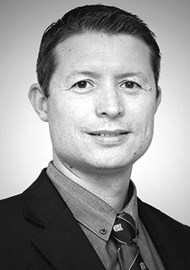The consultant interview is undoubtedly the most important exam you’ll ever sit; but curiously even the best and most motivated trainee becomes somewhat fatalistic when approaching this, the most important of all hurdles. Gone are the days when deals were done behind closed doors and appointments made and agreed over the phone. Instead there is an entirely transparent system overseen by a whole range of individuals from college representatives to legal frameworks. As always, preparation is key. Too often is the CV designed for a stone unit re-submitted (without change) to subsequent applications with differing specifications (and showing a lack of discernment). Pre-interview visits are there not just for you to present yourself informally before the day but also as a fact-finding mission. Ask the questions you think may be coming your way! Increasingly hospital managers are represented on interview panels and will be well aware of the service needs of the department – ignore these at your peril. Here Jacques Roux (who has recently survived the process) provides a unique insight and his article, I am sure, will make useful reading for anyone preparing for that final push.
Tim Lane, Editor (2012-2015), Urology News.
“I have been impressed with the urgency of doing. Knowing is not enough; we must apply. Being willing is not enough; we must do.”
– Leonardo Da Vinci
It is not uncommon to have feelings of trepidation when applying for consultant posts. It is a potential life-changing moment and will be the start of the career that will define you as an urologist. It will be impossible to cover, or to guide you through all of what you need to succeed. The aim of this article is simply to offer a glimpse of what to expect and to suggest some practical advice on how to help you prepare for the big day.
There are many books, courses and websites dedicated to providing comprehensive material to study and which cover many of the commonly asked questions. It is the application of this knowledge, and your personal attributes leading up to and during the interview that will improve your chance of being the candidate they will want to appoint.
Where to begin?
Structure the last few years of your training according to the sub-speciality you want to follow. Start looking through job adverts at least a year before completing your training, and prepare your CV accordingly. Carefully consider whether the job you are pursuing is really the one for you. Have a well thought out strategy. Aim to gather as much information about the job. Study the information sent out with the application. Does the job description appeal to you?
Make full use of the preliminary visit and your meetings with the key players (chief executive, medical director, clinical lead, consultant colleagues and departmental manager). Be prepared and ask questions that will provide you with insight into that particular trust. Find out about their structure, vision and philosophy. All trusts have websites, which will provide you with a sense of their values and vision.
You can search the internet for their annual reports that are published online. The Care Quality Commission website will have published inspection reports and performance indicators for all licensed healthcare organisations. It makes for an interesting read.
The application form
The selection and appointment system for hospital consultants is governed by statute (although currently foundation trusts and independent treatment centres are exempt). The trust must draw up a detailed job description and person specification and advertise the post in at least two medical journals. Short-listing is carried out by the Advisory Appointments Committee (AAC). This usually includes the medical director, the chief executive, a consultant in the relevant speciality, a lay person and an external assessor from the royal college. They are responsible for seeing that the finest candidates are short-listed and the best one suited offered the post. They oversee that the selection process is administered correctly and fairly.
Take enough time and effort completing the application form as you will be marked using a scoring system. Ensure that the headings in your application are similar to the person and job specification. Make sure your application form is suitable for the particular post and is up to date. Make sure your CV is current and tailor-made for the job. This will score higher marks and will increase your chances of progressing to an interview.
Do not lose sight of the fact that you are selling yourself to the best of your abilities. You are showing off your true potential by putting your personal skills and abilities on paper.
Pre interview
Once short-listed set aside time to meet as many of your future consultant colleagues and members of the interview panel as possible. This may mean frequent visits and it is advisable to keep your current trust informed. Some members of the panel might decline to see you before the interview, but they will be consistent with all the candidates and you should have at least asked. Also, make the effort to meet the manager for urology. Ask relevant questions about the current performance and future of the department and pay attention to their reactions and feedback. You can also ask about your job plan, office and secretary. Get a feel for the hospital and the local area. You need to know if the overall package is appealing, because this may be where you could end up for the next 30 years.

The interview
“Preparation prevents poor performance”
– unknown
As with any exam you will only come across as sensible and able to communicate your thoughts and ideas if you know your subject well. The only difference being that you may not have studied the material and have limited management experience. Your prospects will largely depend on your preparation, planning and eventually your performance at the interview.
If you are familiar with the abbreviated terms CQUINs, SHIMIs, QIPPs, NSFs, CHI and PROMs you will have a head start to many. If not, don’t despair, help is at hand.
There are dedicated courses and websites that will help you prepare for the interview. If you decide to enrol on a course, aim to do the basic preparation before. Attend a course with a small group. It is the practice sessions that are the most useful, however painful you may find it. You can also achieve the same by asking a trusted senior colleague to give you interview practice.
Get up to date with medical politics. You will need to familiarise yourself with the Health and Social Care Act, NHS Outcomes Framework, RCS Priorities, benchmarking, Dr Foster, ‘Nicholson Challenge’ and the Francis and Keogh reports. You may be asked to complete an aptitude test. Many trusts now put candidates through an assessment centre before interviewing them, and although daunting, they can be fun and the feedback will be very useful.
Frequently the interview involves a presentation on a specified relevant subject. Prioritise the time spent on preparing your presentation. Talk it through with as many senior colleagues as possible to be critiqued and work to streamline the presentation so that the key points come across. Observe yourself in front of the mirror. Mehrabian’s theory of communication states that the greatest impact is through our body language (posture, gestures and eye contact – 55%), 38% is determined by our tone (be positive and confident) and 7% relies on our verbal communication.
Bear in mind that the audience will not only include clinical professionals but also non-executive and executive directors. You will clearly need to convey the values and skills you can bring to the trust and confirm your commitment by meeting the trust’s goals and objectives. Aim to keep it interesting, locally relevant, well constructed and timed. Save it on a memory stick and email it ahead to the medical staffing. Bring back-up copies too.
“To fail to plan is to plan to fail”
– unknown
The interview itself will be conducted in accordance to statutory regulations. You may have been sent a list of the interviewers on the panel – subject to change. The panel is likely to consist of the chairman, chief executive, medical director, clinical manager, clinical lead, college and or university representative, and a lay person.
Know your CV and be ready to positively elaborate on anything you have included. You can be asked a wide range of questions about you as a person and colleague, about audit, teaching, research / publications and service improvement. Be prepared to answer questions about previous complaints and incident reporting. Other frequent questions will be related to how you would handle a colleague with probity issues or how to manage an adverse event.
“Do not lose sight of the fact that you are selling yourself to the best of your abilities.”
Always be yourself and appear relaxed yet confident. Maintain a positive manner, demonstrate your professional skills whilst acknowledging the importance of teamwork and show a full appreciation for the trust and its service development objectives.
Why are you the best candidate for the job? Show your ability to integrate. Have a few unique selling points (USPs) in your armoury to showcase your leadership and management skills. Regard the interview as a viva and respond to the questions rather than just answering them. A good answer usually has three or four key points.
The aim of the interview is to determine your potential as a colleague for the foreseeable 30 years. The panel want to know how you respond to stress and to show insight (which is not easily taught). Be prepared for the ‘soft’ questions that have no answer and require you to think on your feet, for instance: “Tell me about your weaknesses?”; “Tell me when you were part of a team that failed?”; or “Tell me about a complaint you were involved with and what you learned about yourself?” These questions are often the hardest to answer and are covered extensively in most interview skills books.
It is important to structure your answers so you come across as a friendly, slightly self-deprecating professional who works as part of a team and is absolutely focused on the patients’ safety and wellbeing (‘patients first and foremost’). If asked for your opinion about a topic, have one, but be prepared to be flexible and do not argue excessively.
You may be asked at the end if you have any questions for the panel. You may have, but unless absolutely necessary, it is acceptable to say you don’t or that all your questions have been answered at your pre-interview visits.
Post interview
If you got the job, congratulations! It is advisable to accept provisionally as you may wish to discuss issues around pay and conditions. Thank the panel but do not negotiate at the interview. Do not resign from your current post until you receive the official paperwork. Plan to schedule another visit to discuss car parking, secretaries, office, etc.
If unsuccessful, consider it as a learning experience and ask for feedback. It is your right to know why you did not get the job and the feedback will be useful to improve your future performance. It is not easy to reflect on how and why you fell short. You should find solace in the fact that you are not alone as it is not unusual to progress through a few interviews before the right job finds you.
Final thought
In a rapidly changing NHS the challenges are many, but the potential rewards are great. The consultant of today will need to be adaptable to succeed. The interview process aims to seek consultants that will be part of its future. It is not just about who and what you are but also about your potential and what you are able to become. Good luck!
Useful resources
http://surg-online.net
http://www.anaesthesiauk.com
http://www.consultantinterviews.co.uk
medicaljobinterview.org.uk
ISC Medical
Hammersmith Interview Course
Oxford Medical Training Course





